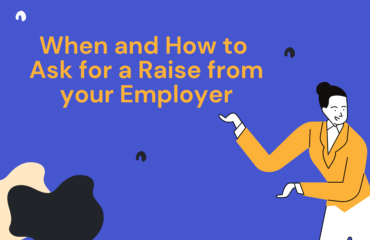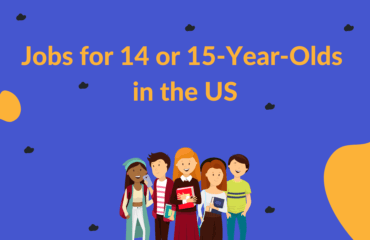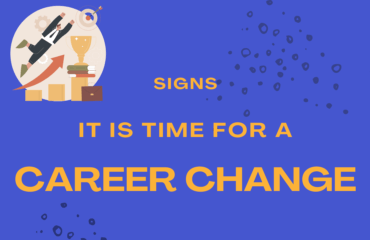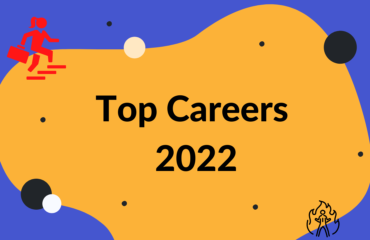Table of Contents
Last year, the pandemic urged abrupt shifts in the way we work. Mandatory transitioning to remote work, precautionary health measures, and forced layoffs caused uncertainty and doubt among employees and job seekers. As a result, new career trends have started to surface, which will impact how professionals set their career goals going forward to 2021.
If you’re currently looking for a job or exploring a career change, it’s normal to feel uneasy or at a loss in this context. With the consequences of the COVID-19 crisis still unfolding in 2021, the job market will continue to be susceptible for a while. However, not everything is unpredictable. We’ve gathered some of the career trends that are easy to witness and likely to remain.
1. Remote work and collaboration
For many businesses, remote work is not just a temporary adjustment to adhere to physical distancing measures, but a long-term business solution. That’s why lots of companies, including Twitter and Facebook, announced that they’re moving to a remote-first culture, offering employees the opportunity to work from home indefinitely. For job seekers, this opens up a new set of opportunities to search for their dream job outside geographical borders, and for employers, it could translate to reduced property costs.
At the same time, this means higher competition for candidates and demand for new skills. Being adaptable, strong in written communication, and proficient with tech is crucial to thrive in a virtual role and collaborate effectively with your teammates. If you’re planning to apply for remote roles, emphasize or enhance those abilities to stand out.
However, working remotely is not as we experience it during the pandemic, that self-isolation is incumbent. It has lots of benefits, such as reduced commute time and more independence but for some, being sociable is part of their professional identity. This is often missing from virtual workplaces and could turn into an unpleasant experience for more extroverted employees in the long run.
2. Roles and industries on the rise
There are certain roles and markets that prospered last year and will probably continue to do so in 2021. These job roles are mainly tech-related, for example, software engineers or developers, and of course, there is an increased demand for healthcare workers resulting from the health crisis. Here are some sectors that are currently booming:
- Cybersecurity
- Data and analytics
- E-commerce
- Healthcare
- Renewable energy
- Learning and development
This list is not extensive, but indicative. So if you’re looking to obtain a new role, keep these career trends in mind to narrow down your job search and consider how your skills could fit organically in these sectors.
3. “Forced” career path changes
Sadly, the financial downturn caused by the pandemic forced many businesses to furlough or lay off employees. Moreover, many employers had to shut down their businesses as they couldn’t survive the crisis. This has increased the number of active job seekers and simultaneously has reduced the number of job vacancies, at least for industries that have been affected by COVID-19, such as hospitality and retail.
So in 2021 lots of people will search for career opportunities and in some cases, they’ll land on new career trajectories. Making use of transferable skills or unexplored talents will come to the forefront. But with companies focusing more on diversity, equity, and inclusion this year, people with diverse skills and backgrounds will be more likely to be selected. Increasingly, hiring teams become more conscious and concerned about recruiting biases and assess candidates not solely based on prior achievement and academic credentials, but potential, too.
4. More automated and virtual recruiting methods
Automation and artificial intelligence had already started to take over the recruiting world but currently, with more and more businesses becoming remote-first, they’re becoming vital. Lots of companies use recruiting software and other tech tools, such as standardized assessments, to systemize and automate mundane recruiting tasks and facilitate collaboration.
Of course, this has a direct impact on candidate experience, too. So if you’re actively seeking a job or plan to do one in the near future, then you’ll probably complete a video interview instead of an on-site one or you’ll be asked to complete a pre-employment assessment. Those techniques are gradually becoming the new norm so you’d better prepare in advance. For instance, equip yourself with an ATS-friendly resume or get used to the format of standardized assessments.
5. Emergence of freelance roles
On the road to recovery from a financial downturn, lots of employers prefer to collaborate with freelancers instead of recruiting for permanent roles. As a result of the pandemic, lots of professionals turned to freelance to remain employed and it’s evident that this work arrangement will continue to flourish in the post-pandemic world.
Even though these job types might be unstable for many or don’t offer the work safety they savor, if you embrace it you may love it. Being a freelancer doesn’t necessarily mean that your work has a deadline. In some cases, freelancers and contractors become full-time employees and trusted partners with similar perks as a full-time workforce.
6. Personal branding and online networking
A determinant factor of a professional’s outreach is how they brand and position themselves in their job market. To stand out, job seekers should define what their value is for a potential employer and promote themselves accordingly. This is the so-called personal branding, and nowadays, it happens mostly online, through social media or personal websites and blogs. For example, you can write a LinkedIn summary that explains your unique talents and interests or write a blog post on a topic you’re passionate about.
For a big part of 2021, networking will happen mostly online, too. Professionals will virtually connect with their peers to exchange ideas or to showcase their work, for example by posting and commenting on LinkedIn or by attending virtual conferences.
7. Higher need for career guidance
All these changes might be overwhelming for many, especially for professionals who are unemployed and find job searching during the pandemic stressful. That’s why in 2021 many people will search for career guidance to grasp what possibilities this unfamiliar work environment has, either by searching information on career websites or by hiring a certified career coach.
Remember, not everyone is in the same boat. Seeking support or guidance to navigate this new scary ground can help you get a clearer understanding of what to expect, whether that’s market trends or understanding new recruiting methods. With proper preparation and adequate information, the path will become more traceable.











